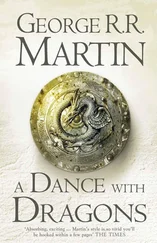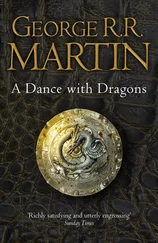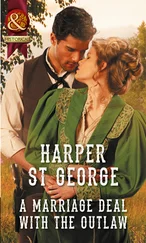Joseph Belcher - George Whitefield - A Biography, with special reference to his labors in America
Здесь есть возможность читать онлайн «Joseph Belcher - George Whitefield - A Biography, with special reference to his labors in America» — ознакомительный отрывок электронной книги совершенно бесплатно, а после прочтения отрывка купить полную версию. В некоторых случаях можно слушать аудио, скачать через торрент в формате fb2 и присутствует краткое содержание. Жанр: foreign_antique, foreign_prose, на английском языке. Описание произведения, (предисловие) а так же отзывы посетителей доступны на портале библиотеки ЛибКат.
- Название:George Whitefield: A Biography, with special reference to his labors in America
- Автор:
- Жанр:
- Год:неизвестен
- ISBN:нет данных
- Рейтинг книги:4 / 5. Голосов: 1
-
Избранное:Добавить в избранное
- Отзывы:
-
Ваша оценка:
- 80
- 1
- 2
- 3
- 4
- 5
George Whitefield: A Biography, with special reference to his labors in America: краткое содержание, описание и аннотация
Предлагаем к чтению аннотацию, описание, краткое содержание или предисловие (зависит от того, что написал сам автор книги «George Whitefield: A Biography, with special reference to his labors in America»). Если вы не нашли необходимую информацию о книге — напишите в комментариях, мы постараемся отыскать её.
George Whitefield: A Biography, with special reference to his labors in America — читать онлайн ознакомительный отрывок
Ниже представлен текст книги, разбитый по страницам. Система сохранения места последней прочитанной страницы, позволяет с удобством читать онлайн бесплатно книгу «George Whitefield: A Biography, with special reference to his labors in America», без необходимости каждый раз заново искать на чём Вы остановились. Поставьте закладку, и сможете в любой момент перейти на страницу, на которой закончили чтение.
Интервал:
Закладка:
From these strange motives, as he told the celebrated Rev. Andrew Fuller, he went to hear Whitefield preach. That evening his text was, "But when he saw many of the Pharisees and Sadducees come to his baptism, he said unto them, O generation of vipers, who hath warned you to flee from the wrath to come?" Matt. 3:7. "Mr. Whitefield," said Robinson, "described the Sadducees' character; this did not touch me; I thought myself as good a Christian as any man in England. From this he went to that of the Pharisees. He described their exterior decency, but observed, that the poison of the viper rankled in their hearts. This rather shook me. At length, in the course of his sermon, he abruptly broke off; paused for a few moments; then burst into a flood of tears, lifted up his hands and eyes, and exclaimed, 'Oh, my hearers, the wrath's to come! the wrath's to come! ' These words sunk into my heart like lead in the water; I wept, and when the sermon was ended retired alone. For days and weeks I could think of little else. Those awful words would follow me wherever I went: 'The wrath's to come! The wrath's to come!'"
Scarcely had Whitefield completed the Tabernacle in London, before he was earnestly solicited to hold public services at the west end of the city, and Long-Acre chapel, then under the charge of a dissenter, was offered for his use. An unruly rabble endeavored to drive the preacher from his post; but a running fire of brickbats, broken glass, bells, drums, and clappers, neither annoyed nor frightened the intrepid evangelist; nor did an interference on the part of the hierarchy, which followed soon after, prohibiting his preaching in an incorporated chapel. "I hope you will not look on it as contumacy," said Whitefield to the bishop, "if I persist in prosecuting my design until I am more particularly apprized wherein I have erred. I trust the irregularity I am charged with will appear justifiable to every lover of English liberty, and what is all to me, be approved at the awful and impartial tribunal of the great Bishop and Shepherd of souls." Writing to Lady Huntingdon, he says, "My greatest distress is so to act as to avoid rashness on the one hand and timidity on the other;" and this shows, what indeed was proved in his whole life, an entire absence of that malignant element of fanaticism which courts opposition and revels in it.
"Determined," as Mrs. Knight says, in her beautiful volume, " Lady Huntingdon and her Friends ," "not to be beaten from his ground, yet hoping to escape some of its annoyances, Whitefield resolved to build a chapel of his own. Hence arose Tottenham Court-road chapel, which went by the name of 'Whitefield's soul-trap.'" Admirably does he say, "I pray the Friend of sinners to make it a soul-trap indeed to many wandering creatures. My constant work is preaching fifteen times a week. Conviction and conversion go on here, for God hath met us in our new building." It was completed and dedicated in November, 1756. Though not equal in its triumphs to the Tabernacle, the congregation has always been large, and its preachers – always the same as those at the Tabernacle – have not labored in vain. In 1829, '30, improvements were made in the building, which still, however, contains Whitefield's pulpit. A vast area in the centre was originally filled with plain seats, where the masses of the people were accommodated free of all pew rent.
Let not infidels tell us, that the religion of these men and of those times was mere enthusiasm, and that the temporal interests of men were neglected in professions of high regard for those of a spiritual character. Let such men know that within two years of the opening of Tottenham Court-road chapel, not only did the congregation build a parsonage-house for their minister, but twelve almshouses for as many poor widows. The Tabernacle has always acted with equal generosity. In proportion to their means, few congregations in the world have exceeded these two in works of benevolence.
Assuredly what has sometimes been charged on evangelical ministers – that they attend to the spiritual interests of mankind, but neglect their temporal sufferings – would never apply to Mr. Whitefield. No sooner had he completed these large edifices, where vast congregations assembled, than he was heard frequently to plead for those laboring under oppression or distress in foreign lands. He preached in both these houses in behalf of the poor French Protestants in Prussia, who had suffered much from the cruelty of the Russians, when great numbers of the nobility, and some of the highest officers of the crown went to hear him. The collections for this object amounted to upwards of fifteen hundred pounds, or seven thousand five hundred dollars; and for this disinterested act of benevolence Whitefield received the thanks of his Prussian Majesty.
Again, on the day recommended by the government for a general fast, Mr. Whitefield preached both at the Tabernacle and at Tottenham Court-road chapel, after which he collected five hundred and sixty pounds for the relief of the German Protestants, and the sufferers by fire at Boston, for which he received the unanimous thanks of the inhabitants of that town. Lady Huntingdon wrote to one of her friends, "It would delight you to have seen what crowds of the mighty and noble flocked to hear him. The collection was for the relief of the poor German Protestants. I invited several to come who probably would not attend his ministry on other occasions." Few places at that time could boast of such a constellation of transcendent genius and senatorial talent, such a brilliant assemblage of wisdom, magnanimity, and oratorical powers, as were then found within these houses of the living God.
One word may be allowed here on the plain architecture of these buildings. "We are," says the excellent Mr. James, "in many things improved, and I rejoice in the improvement; but the occasion of my joy is at the same time the occasion of my fear and my jealousy also. Our ecclesiastical architecture is just now a special object of our attention. Whitefield, it may be confessed, paid too little attention to this; we, perhaps, are paying too much. His only solicitude was to save souls, careless altogether of the tastefulness of the building within which that work, which has no relation to styles of architecture, was carried on. His only calculation in the construction of a building was, how many immortal souls could be crowded within four square walls, and under a roof, to hear 'the joyful sound.' Hence the somewhat uncouth buildings which he erected. Ah, but when I consider that every stone in those unsightly walls has echoed to the sound of salvation and the hymns of redeemed spirits, and that almost every spot on the floor has been moistened by the tears of penitence, then, in a feeling of sanctity I seem to lose the sense of deformity, and there comes over me an awe and solemnity which no modern gothic structure with its lofty arches and painted windows can inspire. But still, as religion is not only the most holy, but the most beautiful thing in God's universe, there is no reason why taste and devotion should not be united. It is the ministry of the word, however, upon which the church must be chiefly intent."
CHAPTER IV.
WHITEFIELD'S SECOND VISIT TO AMERICA.
1739, 1740
As in the preceding chapter, for the sake of connecting the history of Whitefield's church edifices in London, we have anticipated the order of events, we go back to the period shortly before his second voyage to America.
About the time of which we are now writing, a circumstance occurred of deep interest, which Whitefield relates at considerable length. Joseph Periam, a young man in London, who had read his sermon on "regeneration," became deeply impressed by it; he sold all that he possessed, and prayed so loud and fasted so long, that his family supposed him deranged, and sent him to the Bedlam madhouse, where he was treated as "methodistically mad," and as "one of Whitefield's gang." The keepers threw him down, and forced a key into his mouth, while they drenched him with medicine. He was then placed in a cold room without windows, and with a damp cellar under it. Periam, however, found some means of conveying a letter to Whitefield, requesting both advice and a visit. These were promptly given. The preacher soon discovered that Periam was not mad; and taking a Mr. Seward and some other friends with him, he went before the committee of the hospital to explain the case. It must have been somewhat of a ludicrous scene. Seward so astounded the committee by quoting Scripture, that they pronounced him to be as mad as Periam. The doctors frankly told the deputation, that in their opinion, Whitefield and his followers were "really beside themselves." It was however agreed, that if Whitefield would take Periam out to Georgia, his release would be granted. Thus the conference ended, and the young man went out as a schoolmaster at the Orphan-house. There he was exemplary and useful, and when he died two of his sons were received into the institution.
Читать дальшеИнтервал:
Закладка:
Похожие книги на «George Whitefield: A Biography, with special reference to his labors in America»
Представляем Вашему вниманию похожие книги на «George Whitefield: A Biography, with special reference to his labors in America» списком для выбора. Мы отобрали схожую по названию и смыслу литературу в надежде предоставить читателям больше вариантов отыскать новые, интересные, ещё непрочитанные произведения.
Обсуждение, отзывы о книге «George Whitefield: A Biography, with special reference to his labors in America» и просто собственные мнения читателей. Оставьте ваши комментарии, напишите, что Вы думаете о произведении, его смысле или главных героях. Укажите что конкретно понравилось, а что нет, и почему Вы так считаете.












